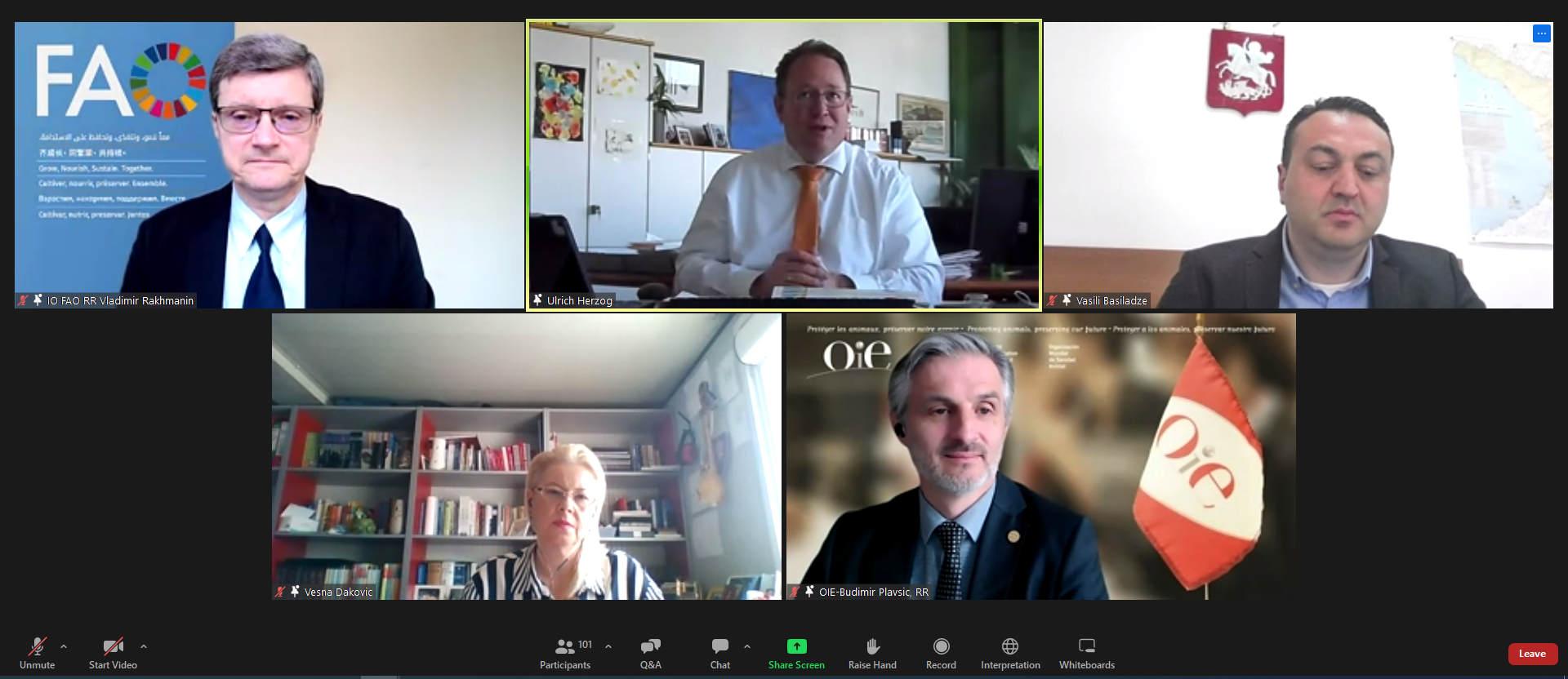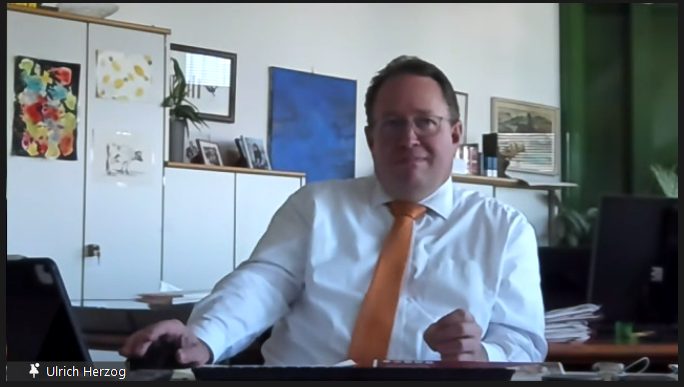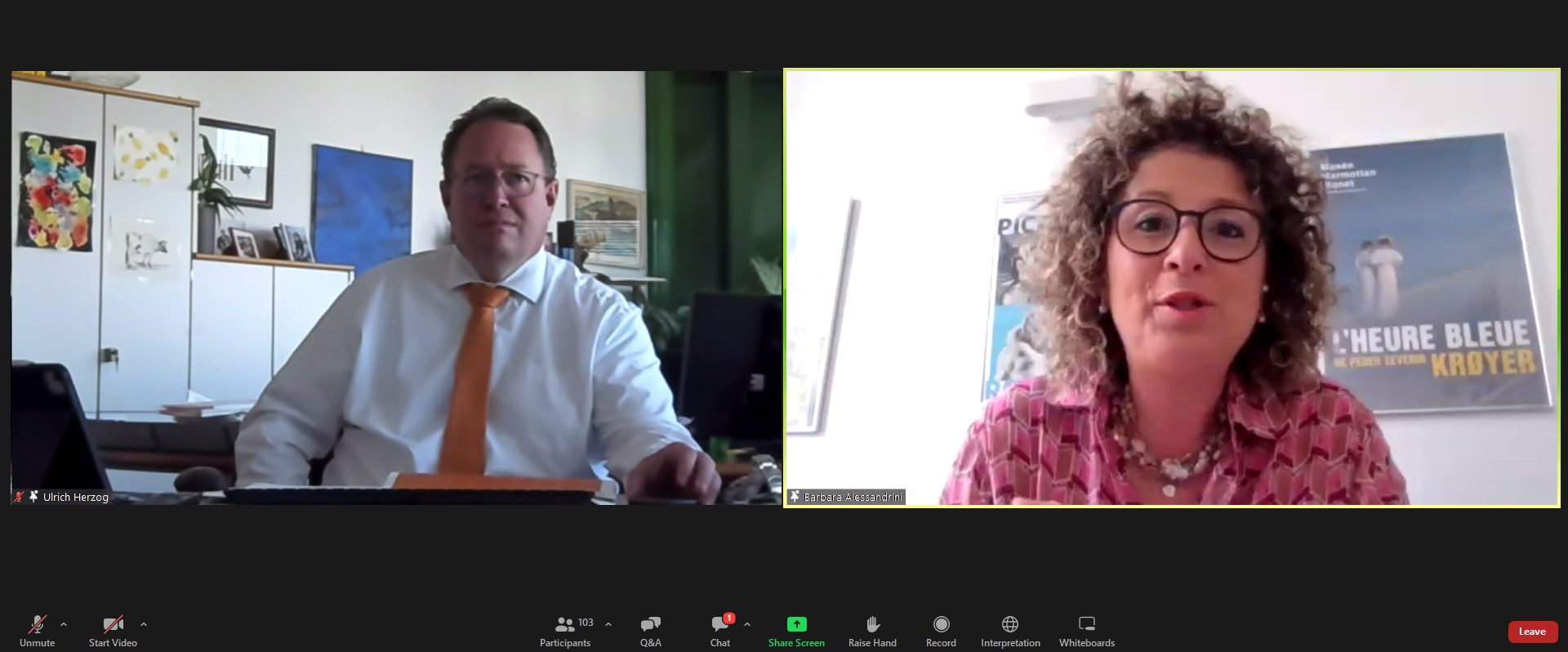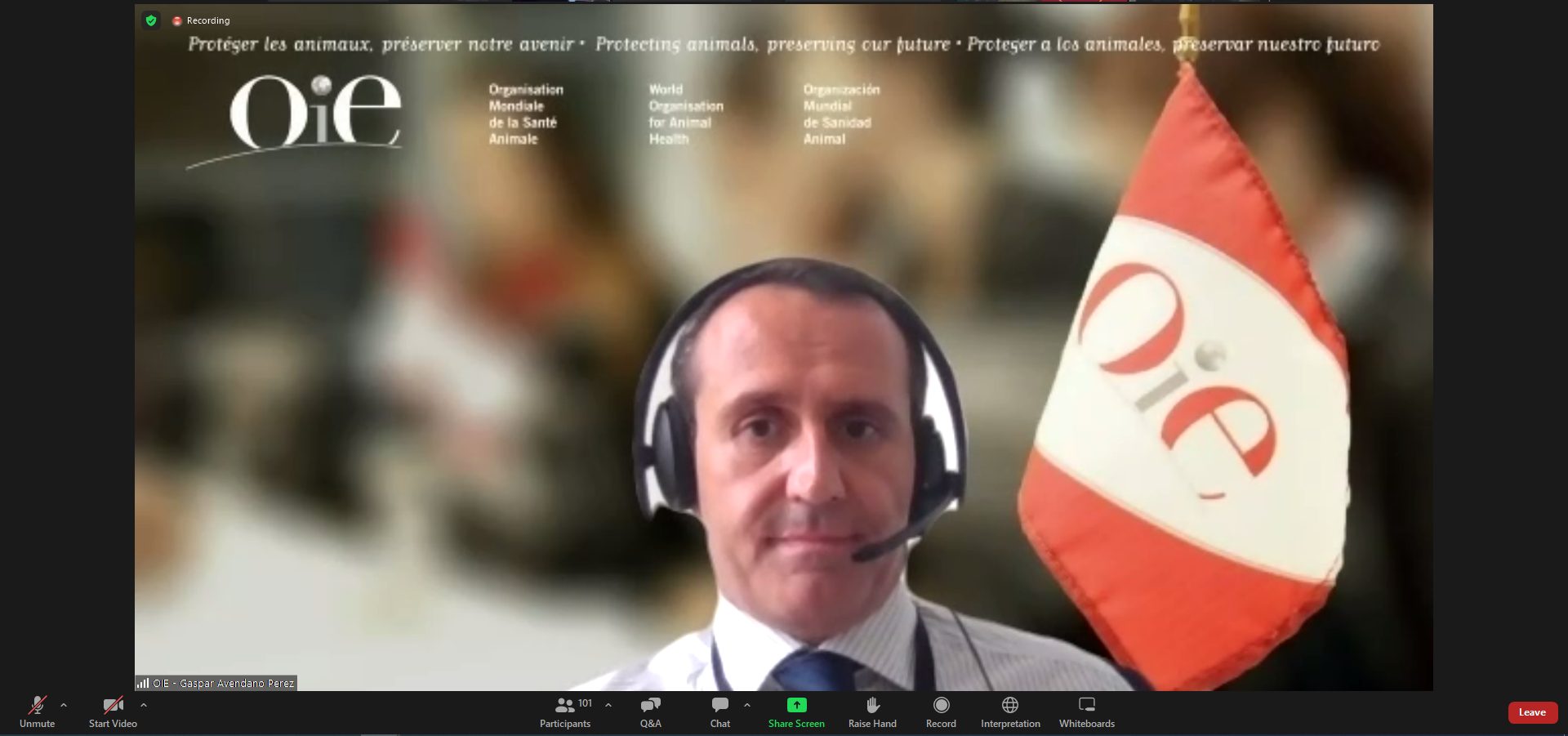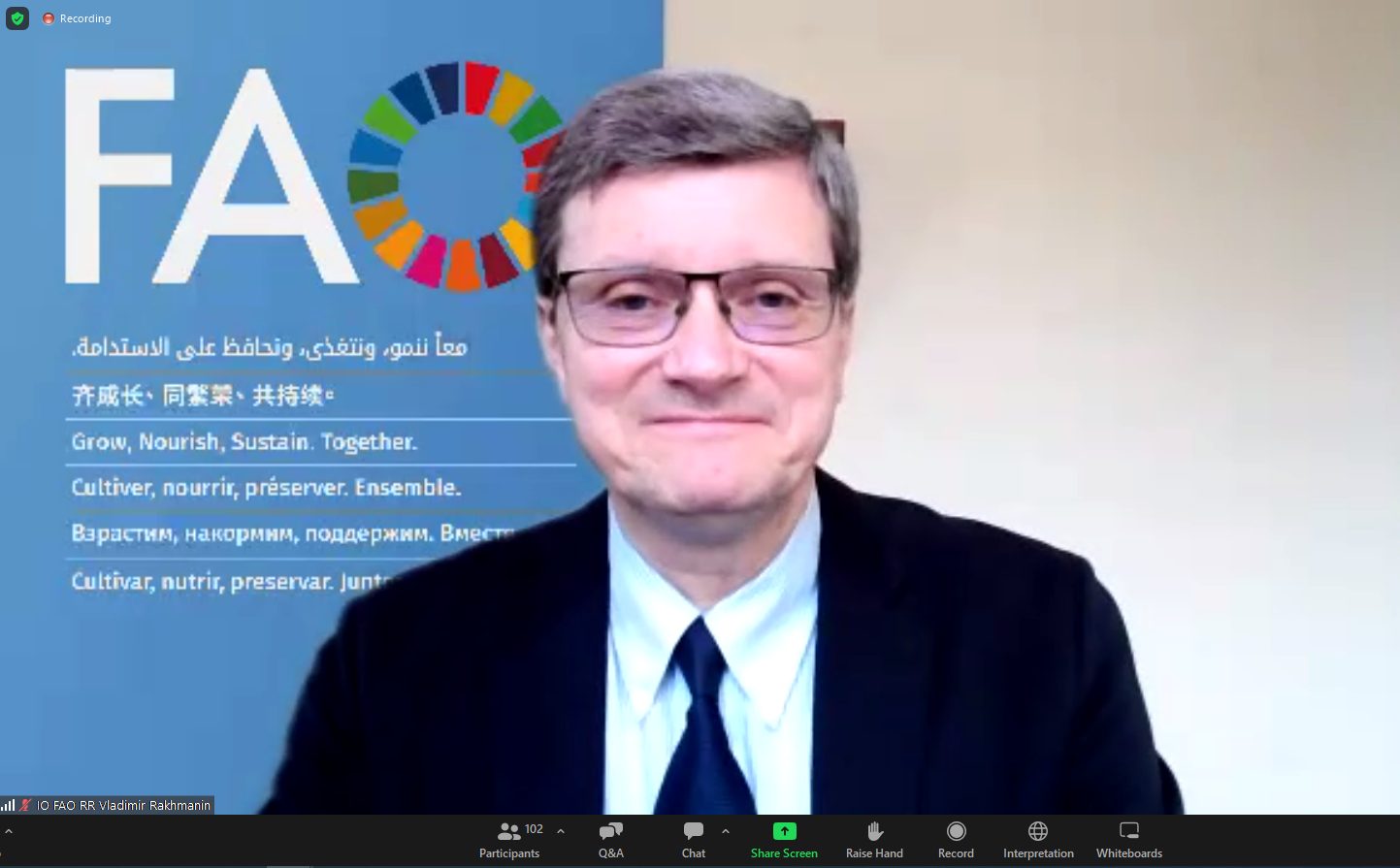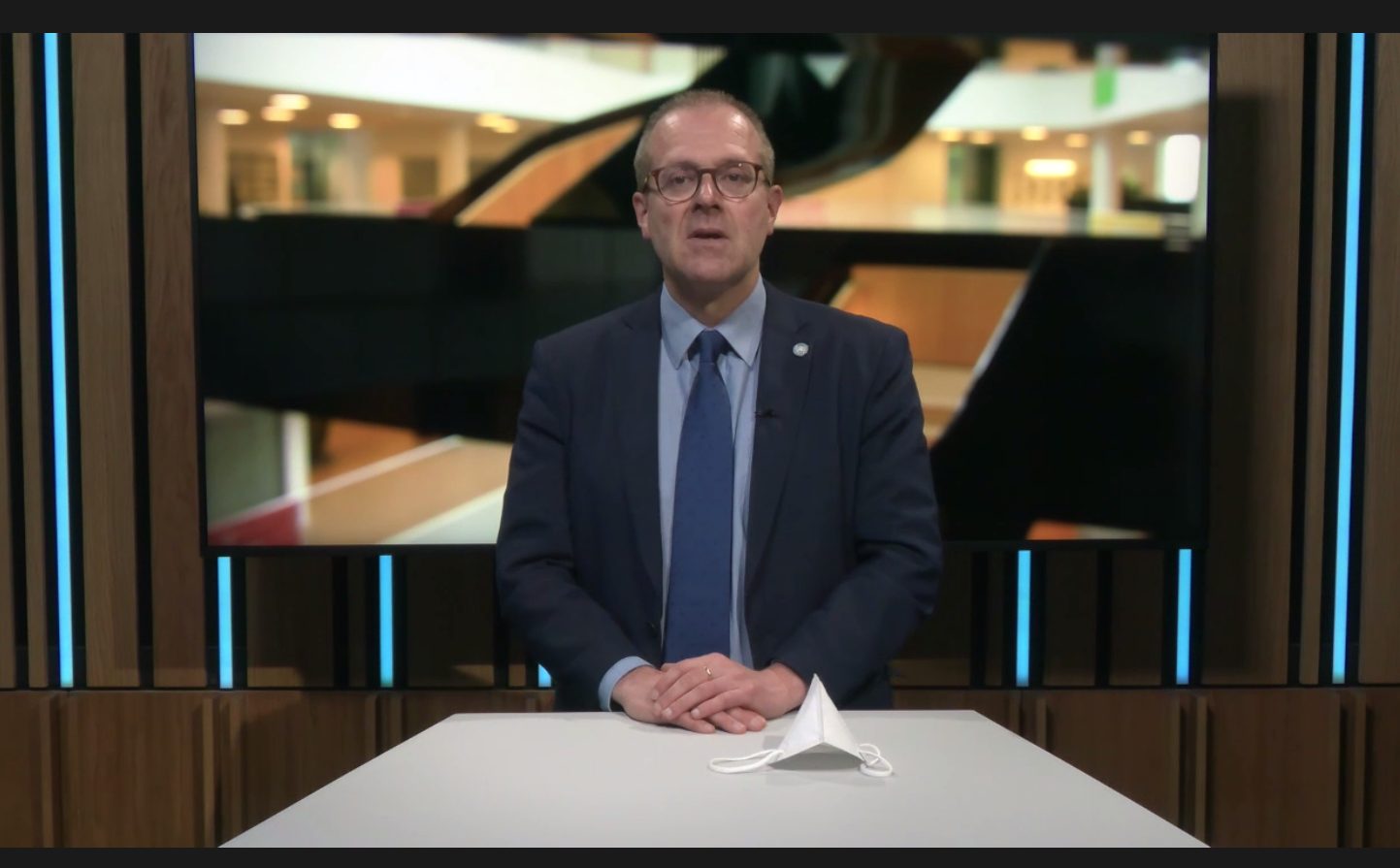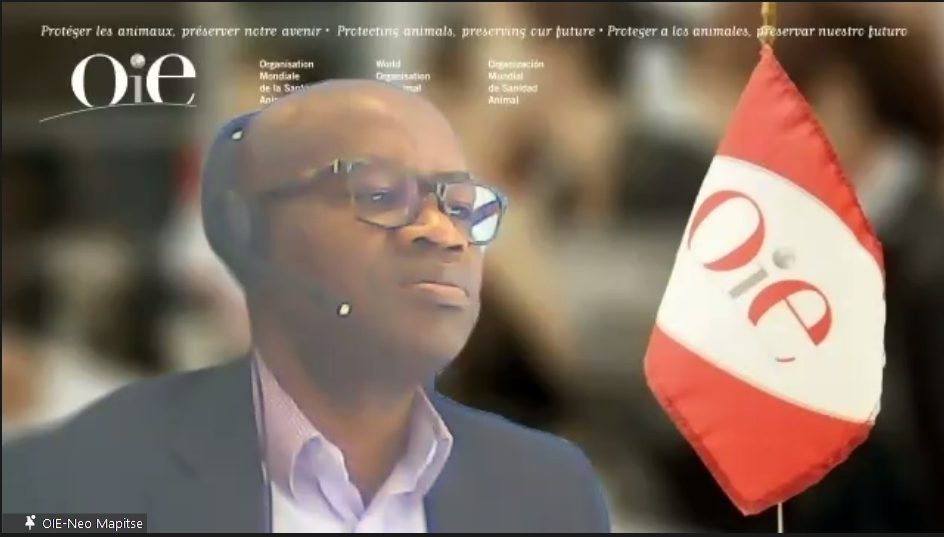The OIE Regional Commission for Europe held an online meeting on May 18th, 2022, from 10:00 a.m. CEST. The meeting was attended by 104 participants, including Delegates and observers from 41 Member Countries from Europe, and representatives from 8 international or regional organisations. Dr Budimir Plavšić, OIE Regional Representative for Europe, welcomed the participants, announced that this meeting is starting the 89th General Session of the OIE and went through the rules of interaction during the webinar.
The meeting was chaired by Dr Ulrich Herzog, Vice-President of the OIE Regional Commission for Europe and OIE Delegate of Austria. Dr Herzog welcomed the delegates and observers from Member Countries and international organisations and highly appreciated the collaboration within the OIE.
Under leadership of Dr Herzog, meeting agenda was unanimously adopted and effectively implemented during this important, institutional meeting of OIE Delegates of Europe. The Regional Commission selected “Vaccination against HPAI” technical item for inclusion in the agenda of the 30th Conference of the OIE Regional Commission for Europe, and following strategic topics of global interest to be addressed by the OIE through various means (Scientific Review, seminars, conferences, brochures):
Dr Davide Lecchini, Delegate of Italy, presented activities in organization of the 30th Conference of the OIE Regional Commission for Europe and invited all Delegates and representatives, to attend the conference, which would be held in Catania, from 3 to 7 October 2022.
Dr Barbara Alessandrini, Head of the OIE Capacity Building Department, introduced the evolution of the PVS Pathway, OIE capacity-building system, and the Platform for the Training of the Veterinary Services. New methodologies and support programmes, remote and blended options, and digitalization are the three pillars on which the OIE capacity-building system intends to move from the new normality of the post Covid-19 era to a new future in which flexible and blended approaches are possible, thus optimising the use of human, technical, and financial resources.
Dr Gaspar Avendano Perez, Technical Coordinator of the OIE Observatory, shared the first findings of a recent survey of national Focal Points for Aquatic Animals. The objectives were to identify barriers preventing OIE Members from:
He pointed out the most important barriers identified in the survey, such as the fact that aquatic animal health is not prioritised by government agencies, which was seen by 54% of the respondents globally, as a blocking barrier to the notification to the OIE. He also highlighted that only 9% of the respondents indicated that Chapter 4.1. of the Aquatic Code, which was adopted at the 88th General Session in 2021, had been fully implemented in their country/territory.
The honorable guests and OIE partners, Regional Representatives of FAO and WHO for Europe (Mr Vladimir Rakhmanin and Dr Hans Kluge) made their statements.
Mr Vladimir Rakhmanin, FAO Regional Representative for Europe and Central Asia, commended work done together with the OIE and WHO in the framework of the One Health Partnership, with the recent adjunction of UNEP colleagues. At regional level, the FAO will continue to work with the OIE and other colleagues in the framework of the Regional One Health Coordination Mechanism for Europe and Central Asia, established in April 2021. Last week, during FAO Regional Conference for Europe, Member States reaffirmed the importance of adopting and implementing the One Health approach, including the fight against antimicrobial resistance and zoonotic diseases through national action plans. Mr Rakhmanin also highly appreciated collaboration with OIE under umbrella of the Regional GF-TADs mechanism, with a very effective leadership of DG SANTE, where key diseases like ASF, Rabies, LSD, PPR, FMD and others are well coordinated for many years.
Dr Hans Kluge, WHO Regional Director for Europe highlighted the high level of cooperation with the OIE at regional level on the areas of common interest, including zoonoses and pandemic preparedness, and that Covid-19 reminded us that approximately 60% of human diseases originate from animals. He concluded that no one sector can successfully lead activities against disease, and that only coordinated multisectoral One Health approach will ensure balanced and optimised health of people, animals and ecosystem. OIE is a vital partner to WHO and our cooperation in Europe was improved greatly since the Quadripartite One Health Mechanism was created 13 months ago. Our common goal is to avoid emerging and re-emerging health threats. Building capacities in all sectors is essential to help countries manage threats in practice.
Dr Neo Mapitse, Head of Regional Activities Department, announced that participants of the OIE 89 General Session could access virtual kiosks from this link: https://www.oiegeneralsession89.com/en/partners. Online discussion groups will be also open and are accessible from the following link: https://www.oiegeneralsession89.com/en/content/groupes-de-discussion.
